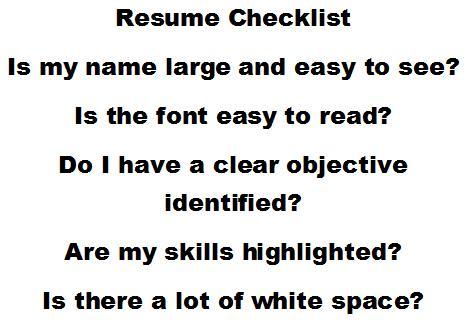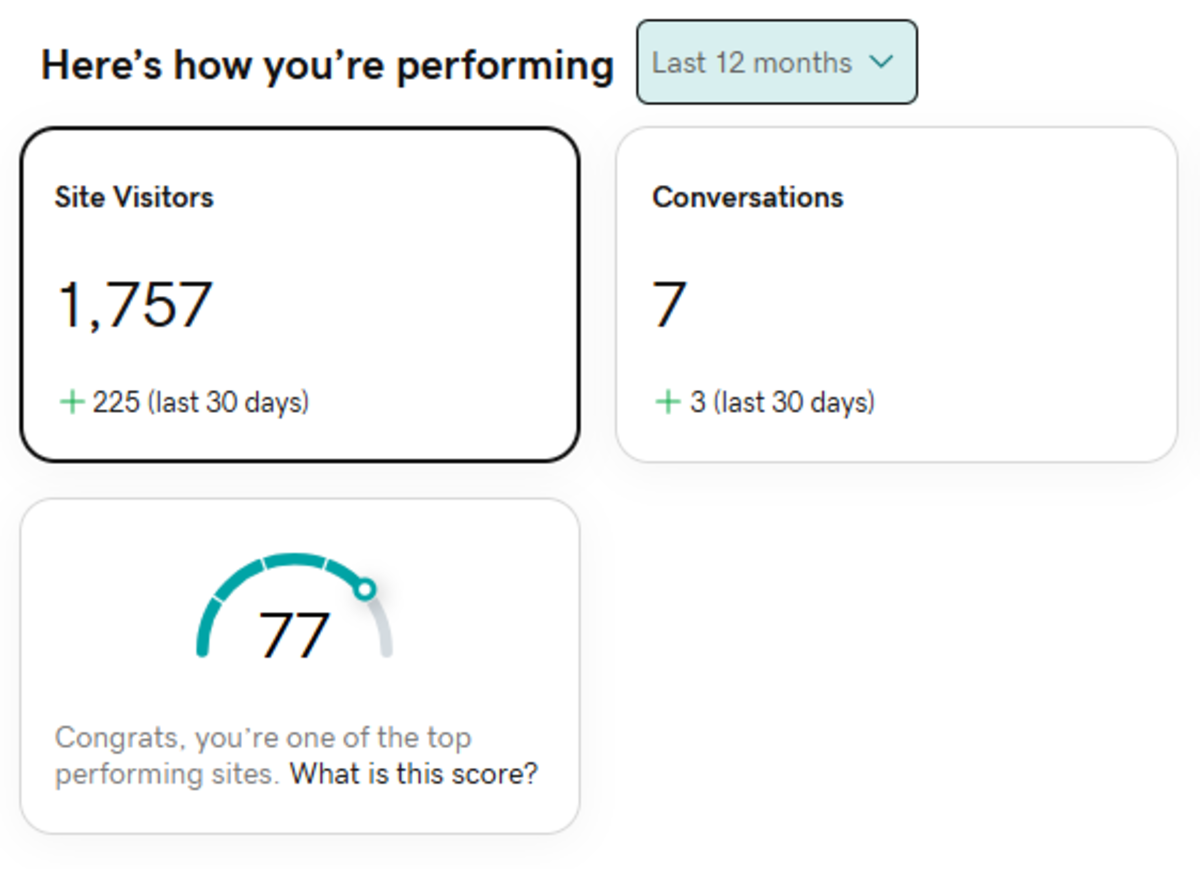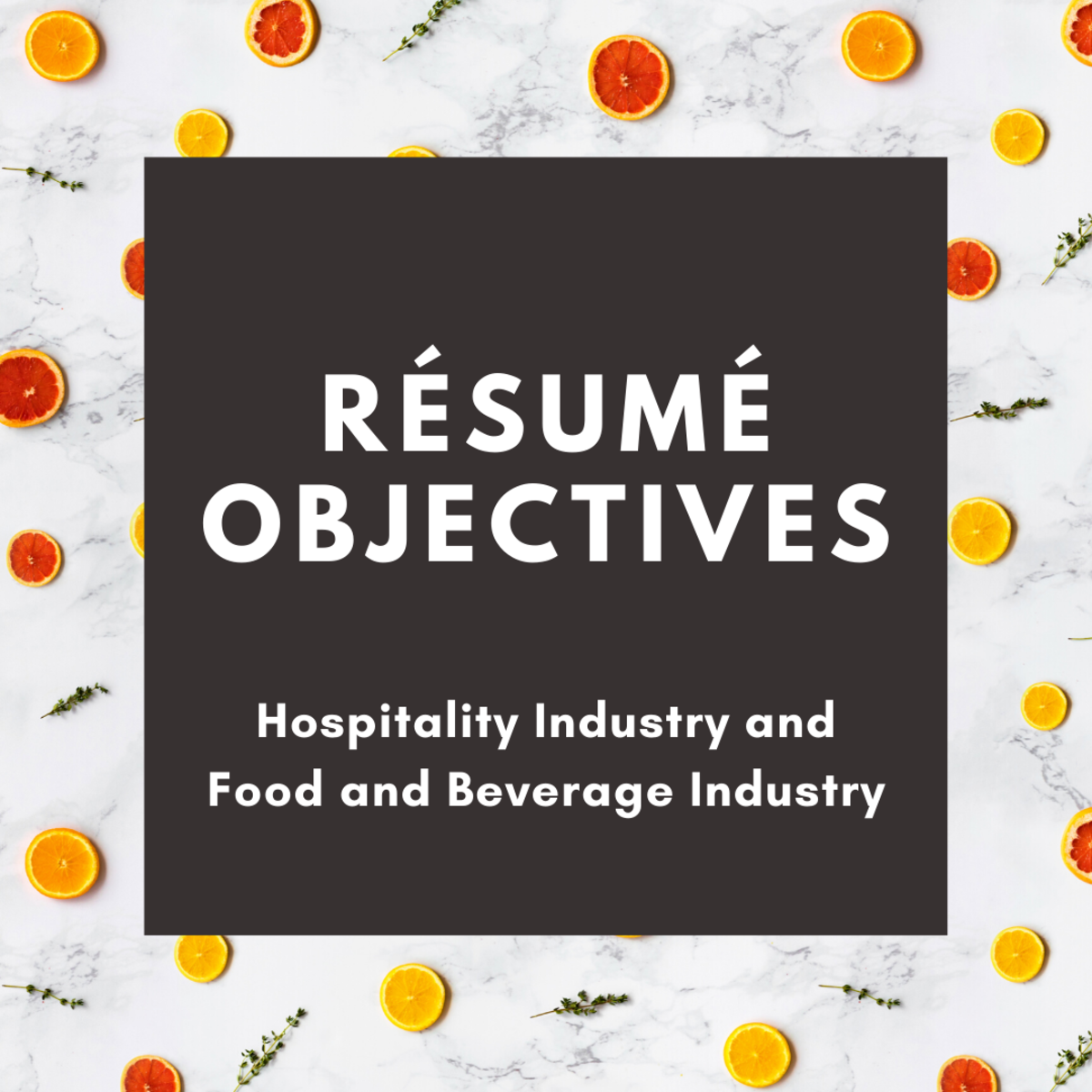Why Does My Resume Keep Getting Passed Up?

If you are struggling in this terrible economy right now, you are not alone and competition for even the most entry level of jobs is stiff. It’s possible that you aren’t doing anything wrong with your resume, but there are always ways to enhance your resume. Try some of these resume tips if you haven’t already:
1. Focal Point. To start, print your resume and turn it over. When you flip it back over, what is the first thing you see? An effective resume gives your eyes a focal point. For example, my resume has my initials in large font in the top corner, which naturally brings your eyes to that starting point. The same effect can be made with your name in large font in the center top.
2. Spaciousness. Secondly, while looking at your resume do you see mostly black ink or white paper? Too much black ink gives the feeling of being cluttered and the effect you want to give is crisp and clean. We’ve all heard resumes should be only one page, and generally, yes, that’s correct. However, and this is a big HOWEVER, if your resume is single spaced with 8 point font and .25 margins, it is too cluttered! It hurts my eyes to just look at it, which is an easy reason you may not be considered. Resumes should be EASY TO READ. My resume is a page and half and I’d say as long as you have relative job experience for the specific job you are applying for, then it’s okay to exceed a page (up to three). To make sure your page is spacious, use 1.25 margins on the sides and 1 inch margins on top. Use bullet points when possible to add even more white space. Avoid using several fonts and only use black font and white paper. Resumes on pink paper look unprofessional as does silly font. Stick with fonts that are easy to read like Arial, Times New Roman, Calibri, etc.
3. Objective. Does your resume state your job career objectives? If not, it should! Your objective should be one of the first things on your resume for any potential employer to see. A few examples include: To work as a writer in the field of nonprofits or To become a lead sales manager in the fields or food or hospitality. For each job you apply for, tweak your job objective to more closely fit what the company is looking for. Do not merely cut and paste the job title since that’s exactly how it appears to the employer. If the job is for a sales associate at Nordstrom and you write “my goal is to be a sales associate at Nordstrom” this seems insincere and fake. An easy change would to “To work in sales or customer support for a major retail chain.” Unless you have worked in the exact same field for your whole career (and few of us have) resumes without objectives are easily passed up. When you work in multiple fields, how will the employer know what your career objectives actually are? So include an objective and customize it per job. Your objective shouldn’t say “to paint houses” if you are applying for a receptionist position. Don’t give an employer a reason to pass you by.
4. Skills. After your objective, always highlight your skills. Maybe you are wiz at Photoshop or maybe you type 90 words per minute. We all have skills, so make sure those shine through. Depending on the job you are seeking, you should again tweak your skills to fit the job description when possible.
5. Work history. Besides just including where you worked with dates, outline your job description and highlight your successes. For example, if you were promoted ever, mention this! If you received an award, mention this! Remember, you are selling yourself! Sometimes the dates on your resume may be a deterrent as well. For example, if in a year you had five jobs, that’s a red flag. So you have two options, omit the dates completely, just use the year or provide a reason why your employment ended at each location. Employers want stable employees, so if you were laid off, moved away, wanted to focus on school, etc. it’s helpful to mention reasons. When I received resumes from people with several jobs in a short period, I generally did not consider them unless a clear reason for job jumping was established. Of course, you can fool me by only providing the year.
6. Your education. You don’t need to provide dates on your education, just provided where you went to school and note if you received a degree. If you went to college, but didn’t graduate, still include the school on your resume! School is school and it can’t hurt your chances. If you had high grades (GPA) or were on the Dean’s list, mention this as well.
7. Keywords. Since some companies use programs to scan resumes for potential candidates, always make sure specific wording from the job description (ad) appears on your resume. For example, if you stated a skill was exceptional customer service and the ad indicated they want someone courteous and polite, these two phrases pretty much mean the same, but it could be the difference between being passed up, so modify your skills/experience as needed to make sure your resume isn’t passed up.
8. Cover letter. You are more likely to get an interview if you include a cover letter. If you already include a cover letter, I hope it’s not the exact same letter for each job. For every job, you need to personalize your cover letter or write a new one from scratch. Skills the company is looking for should shine through in your letter. Besides talking about how great you are, one HUGE thing you can do is explain why you are actively pursuing a specific job. This is EXTREMELY BENEFICIAL, especially for job seekers who are pursuing a new field of work. As someone who previously selected resumes for interviews, I can honestly tell you if you do not have relative experience, you can still get the interview if your letter is compelling and again, explain why you want the job. This is very different from explaining why you would be good at the job…so what if you would be good at, tons of people could be good at, but why do you want it? This past month I landed 7 interviews with my resume and cover letters and I did recently secure new employment, so it does work.
These resumes tips may not always work for everyone, but if you are struggling to find employment and your resume hasn’t even gotten you a call, I hope you’ll consider these modifications. It’s absolutely more work for every job, but it’s worth it.
Once you get that call for a job interview, prepare yourself by mastering these commonly asked interview questions:
- How to Interview for a Job: Master Commonly Asked Interview Questions
Landing a job in this economy is tough. Give yourself the edge by mastering commonly asked interview questions. The more you prepare, the more you will succeed.








